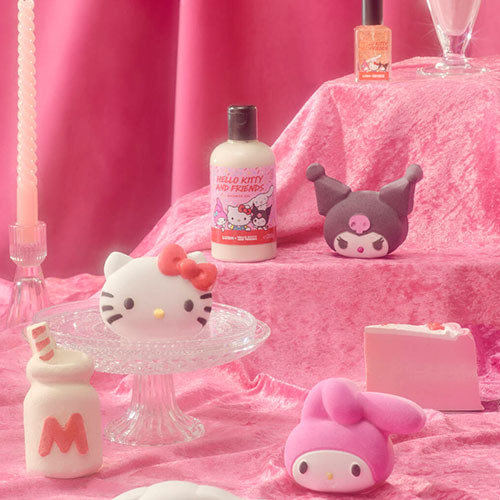Source chats to some key players in the sector about what makes the brands so appealing and how the trend will continue.
Walking the aisles of Licensing Expo last summer and BLE last October, there was one trend which was notable in its increased presence. The number of anime, kawaii or kawaii-style properties on show was certainly a sign that the sector is in rude health, and still growing.
One of the first anime series to achieve worldwide popularity, Pokémon debuted in Japan in April 1997, with the series first airing in Europe 20 years ago and now broadcast globally in more than 160 countries in over 30 languages. Its success in licensing since then has been simply staggering.
“Pokémon continues to flourish, with ground-breaking product launches, an ever-expanding licensing programme and multiple partnerships with major global brands and retailers in the pipeline,” Mathieu Galante, licensing director EMEA at The Pokémon Company International, comments.
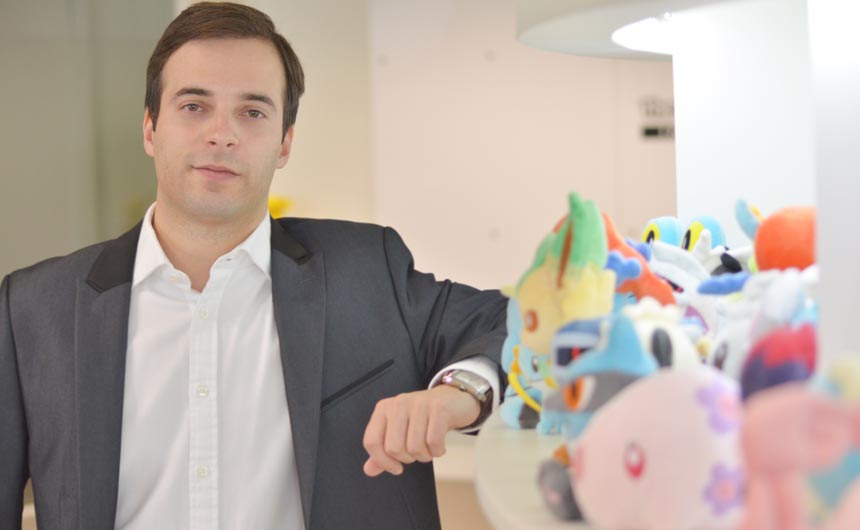
The brand has evolved from its three enduring pillars of animation, video games and Trading Card Game, adding live action movies and apps, while Pokémon has also become something of a fashion icon, from high-end to mass retailers. Pokémon Sword and Pokémon Shield launched in November, with new apps to follow in 2020, plus the World Championships come to London, marking the first time the event will be held outside of the US. The brand will also celebrate its milestone 25th anniversary in 2021.
While Pokémon has always been mainstream, Mathieu says that the appeal of anime and kawaii outside of Asia is now growing. “The artwork is gorgeous to look at and the themes and stories are so varied that there is something for everyone, making for a very broad appeal, while the growing plethora of new platforms such as SVOD and AVOD are bringing different shows to new audiences,” he says. “Possibly also, the more popular they become in the West, the more inclined the creators become to slant their appeal to attract even more fans.”
Brown & Friends is the original character line-up of LINE FRIENDS, which started to make waves in the licensing space following its appearance at Licensing Expo 2018. It features 11 characters which were originally created for use as stickers for leading mobile messenger application LINE and its 200 million active worldwide users. WildBrain CPLG is the licensing agent across EMEA for Brown & Friends and sees an enormous opportunity to develop a long-term programme.
“Retailers and licensees have shown a strong thirst for new lifestyle content to satisfy today’s consumers,” a spokesperson for LINE FRIENDS explains. “The business of LINE FRIENDS is not limited to character merchandise and what comes to the minds of most people when talking about a character brand, and goes beyond to a wide array of formats including videos, animations, games, exhibitions and a theme park.”
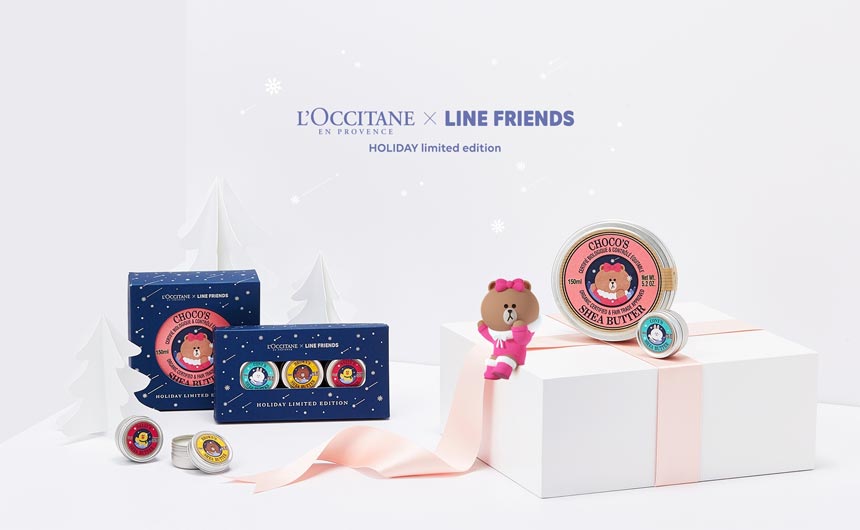
John Leonhardt, head of consumer products at Crunchyroll, believes that the wide net of characters, dramas, environments and adventures appearing in anime creates both a broad and a niche appeal.
The company – which has recently joined forces with VIZ Media Europe – is seeing strong interest across all of its titles, as anime grows as a genre of choice for many manufacturers in response to consumer demand. Among its portfolio is Bananya, a series of anime shorts about the secret life of kitties who live in bananas – it has been one of Crunchyroll’s most successful properties with over a million licensed products sold.
“Apparel and figures tend to be the first categories licensed as they are key components of anime fandom,” explains John. “There will always be properties like Dragon Ball that appeal to wide audiences, but there are also fantastic shows under the radar that have passionate fan bases like Cardcaptor Sakura. We think the more people that are exposed to anime, the more anime will continue to grow since there truly is a anime genre for everyone.”
Licensees – and retailers – are now seeing anime as a key genre and one they want in their portfolios, says John. “The early adopters of anime have had an advantage as they were able to secure the most popular titles,” he furthers. “Retailers like Hot Topic have always had anime as part of their offering, but now we are seeing Target and Walmart look to anime for growth.”
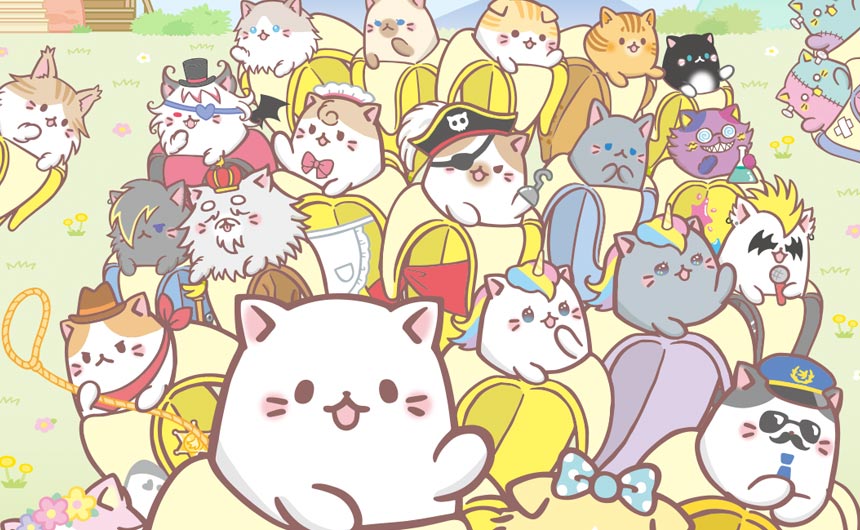
Aâdil Tayouga, TV series/films and licensing executive manager at VIZ Media Europe, believes that Japanese licences bring novelty in a crowded market and settle down to become sustainable brands. “We are seeing a real success of Japanese properties and a strong comeback of this pop culture, covering all generations,” he explains.
VIZ Media Europe’s portfolio is almost 50-strong across EMEA territories, mainly manga-based with some of the most famous including Captain Tsubasa, Yo-Kai Watch, Doraemon and One Punch Man.
“During the 1980s and 1990s, Japanese anime was already hugely broadcast in France, Spain, Italy and the Middle East,” continues Aâdil. “This generation are now parents, passing this anime culture onto their kids which impacts on consumption and merchandising. The originality of the Japanese licensed content is very popular among different age groups, with every launch subject to an adapted marketing strategy to expose the brands to a greater mainstream audience.
“The choice of partners is also key to increase their popularity, especially the TV broadcasters and licensees.”
Platforms such as Netflix and Amazon Prime allow for content to be adapted locally and reach a wider audience, while the work done by retailers in establishing dedicated Japanese pop culture areas also contributes significantly to the growth of the sector.
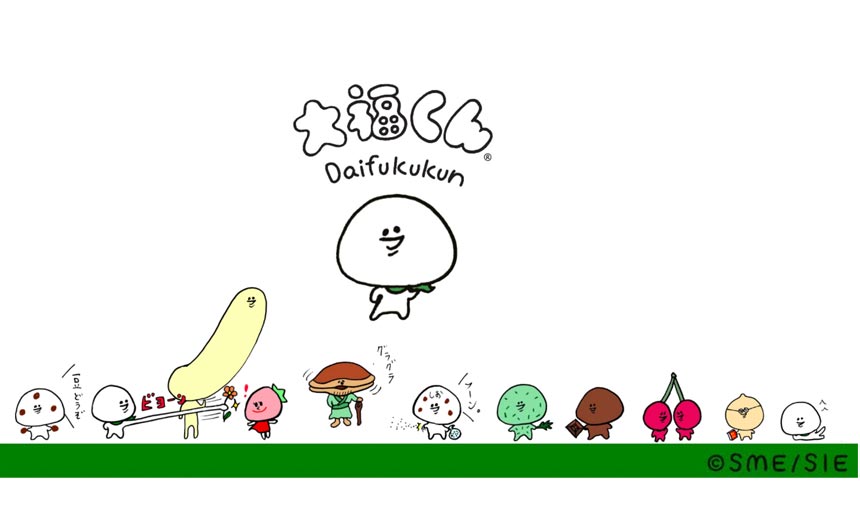
Kumiko Muto, director of global business division at Sony Creative Products, believes that, while the kawaii trend has been mainstream in the Japanese character market for a long time, the soothing and comforting element of many of the characters is also key to its wider growth.
The company’s Daifuku-kun – based on the popular Japanese sweets, Daifuku-mochi – is likely to get a lot of attention heading into the Tokyo 2020 Olympic Games, which is one of the key reasons SCP decided to develop the character and his friends (which are also Japanese sweets).
“Another key element of Daifuku-kun is to deliver love and friendship to the world,” continues Kumiko. “His personality is very sweet and in his stories he opens his mind to anyone. In terms of licensed products, we’re creating soothing plush.
“Recently, it’s becoming more important to have comforting and soothing elements in the characters themselves or their stories. This is because of a huge demand from female consumers in their 20s who work very hard and would like something comforting at the office, such as mugs or stationery.”
Meanwhile, Molang was originally born in 2011 as a Korean emoticon, first becoming popular on instant messaging applications such as WeChat and Kakaotalk. French independent animation studio, Millimages, created a TV show in 2016, which now extends to more than 190 countries worldwide.
The character’s appeal is since broadening from the TV show aimed at the younger audience to growth across the social and digital space, with Giphy uses having just topped five billion in under 18 months, driven by the 18-34 age group.

Ian Wickham, director of Licensing Link Europe – Molang’s agent in the UK – believes there is a general appeal for kawaii-oriented properties, coinciding with a global trend for Asian culture in general. “They are true lifestyle properties with a simple appeal,” he says. “Nothing complicated – just appealingly drawn characters that reflect emotion, a mood or a feeling. There is an openness from licensees to get involved with these properties – they would appear to be less risky, not reliant on TV programming or on a single particular strand or strategy.”
The challenge, Ian continues, lies in the mass market retail environment as there is still some resistance for exactly the reasons mentioned above – no big marketing support to back a TV or movie launch, for example.
“They are not absolute mass opportunities, which means there is a challenge at retail when retailers have to anniversary churn/performance/volume sales, etc for Kawaii-oriented properties to be considered for bricks and mortar space,” he continues. “However, as we shop more and more online, then this is potentially where the bigger opportunities lies.”
One thing for certain is that anime and kawaii is a growing category for the licensing industry and one which offers a point of difference for licensees and retailers as we move forward. It will be interesting to see if the trend continues in the aisles of Licensing Expo and BLE this year.




























